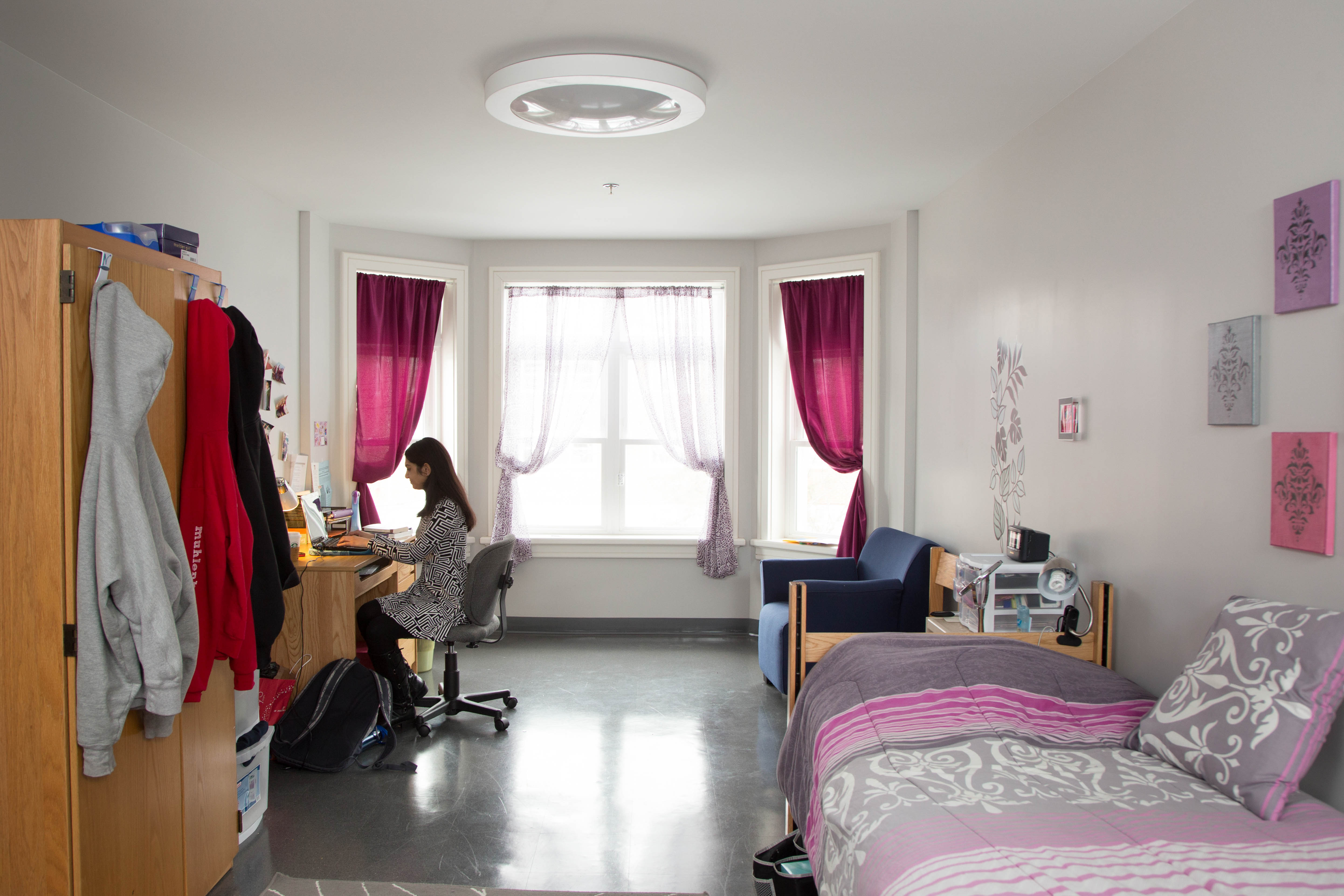The Office of Housing and Residence Life (HRL) has implemented an updated set of procedures to ensure that information and knowledge surrounding off-campus living is made as transparent as possible. While there have not been any official changes to the actual policy for applying to live off-campus, there has been a shift in the timeline, with information regarding off-campus living going out to students earlier, at the beginning of October.
Students are strongly advised to not sign any lease for off-campus housing until they are approved by HRL. There is no guarantee that all students will be approved.
“Before this year, we would advertise all housing before classes begin in January,” explains Kate Shelley, Associate Director of Housing Operations. “This year, information went out in October, so the only change is how early we start marketing it aggressively.”
Since the first introductory email sent out to rising Juniors and Seniors on Oct. 3, there have been four mandatory training sessions offered to students interested in living off-campus. The training sessions provide students with tips as well as important questions that they should be asking themselves and their landlords, often suggested by past students, according to Courtney Stephens, Assistant Dean of Students and Director of Housing & Residence Life.
We want to set students up for success once they are off campus.
“We want to set students up for success once they are off campus,” says Stephens. “But we are also always here for them, whether they are in ML or living on Tilghman.”
While the information provided to students at the training sessions is available online on the HRL website, attendees are also given hard copies, and a general opportunity to ask questions face to face with HRL staff. Students unable to attend the in-person training sessions due to being abroad for both Fall 2018 and Spring 2019 semesters are able to participate in a virtual training session.
“We do have a controlled number of students allowed to live off-campus because we have an agreement with the city of Allentown,” explains Stephens. “We are also a residential college, which means students are required to live on-campus. Moving off-campus is deemed as an exception and a privilege.”
“We already know, given number of applications, we will not be approving everybody,” adds Shelley.
Shelley explains that there is a range of the number of students approved to live-off campus, which varies each year. For example, in the 2016-2017 school year there were more students that declined their offer after being approved, so late applications were able to be accepted. This may have given a false sense of how many students actually are allowed to move off campus, according to Shelley.
“There is a waitlist, which is totally dependant upon the students who got it,” says Stephens. “If we do have people turn their offer down, then we certainly would bring people off of it. It’s in order of date and time of submission, with seniority. Any on time, eligible senior applications will be reviewed before any of the junior applications.”
We are trying to put a system in place, and we are doing everything we can to stay consistent
“We are trying to put a system in place, and we are doing everything we can to stay consistent” adds Stephens.
There were no students taken off the waitlist last year, notes Shelley.
Students are also encouraged to apply to live in a MILE house or other living options in the housing lottery in order to have an on-campus backup if they do not get placed in an off-campus housing.
For students who are approved to live off-campus, there is a mandatory meeting in August before classes start. That meeting is offered as a reminder that despite living off-campus, students still have access to campus resources, such as the gym, counseling, the dining hall and more, says Stephens.
It is also very important that students submit their applications on time, since as Shelley puts it, “it is much easier to withdraw an on-time application.”
Besides for the mandatory training sessions and on-time submission, other requirements for off-campus living include: 2.0 GPA, in good conduct standing and Junior or Senior status.
Applications for off-campus are due by Feb. 1. Once reviewed initially, there will be a conditional approval by Feb. 19, and a final approval by March 15.
Sydney Coplin is a senior majoring in Media and Communication. She is currently spending her final semester of college interning and studying in Washington, D.C. She has previously been on staff as News Editor and Managing Editor.






















